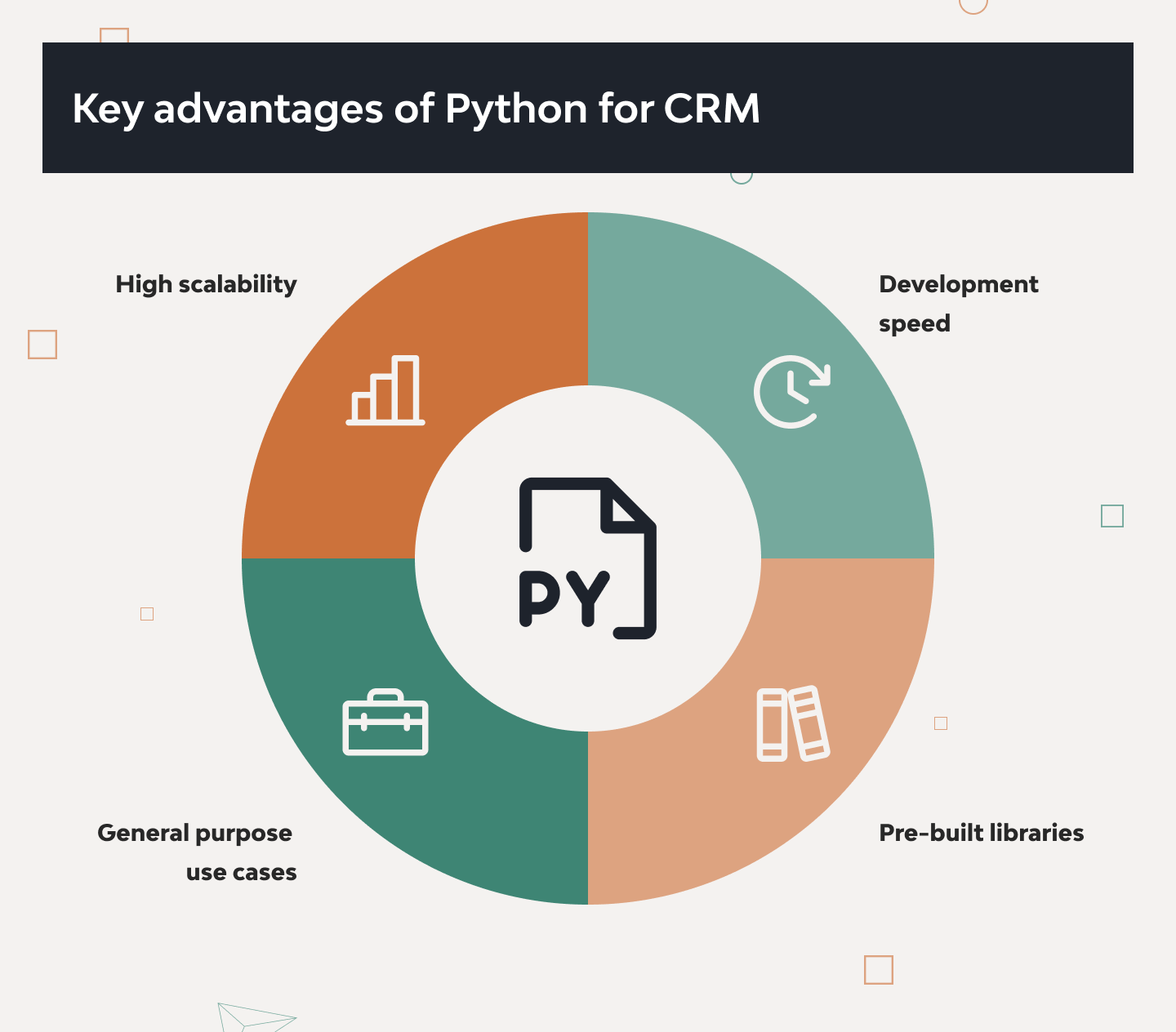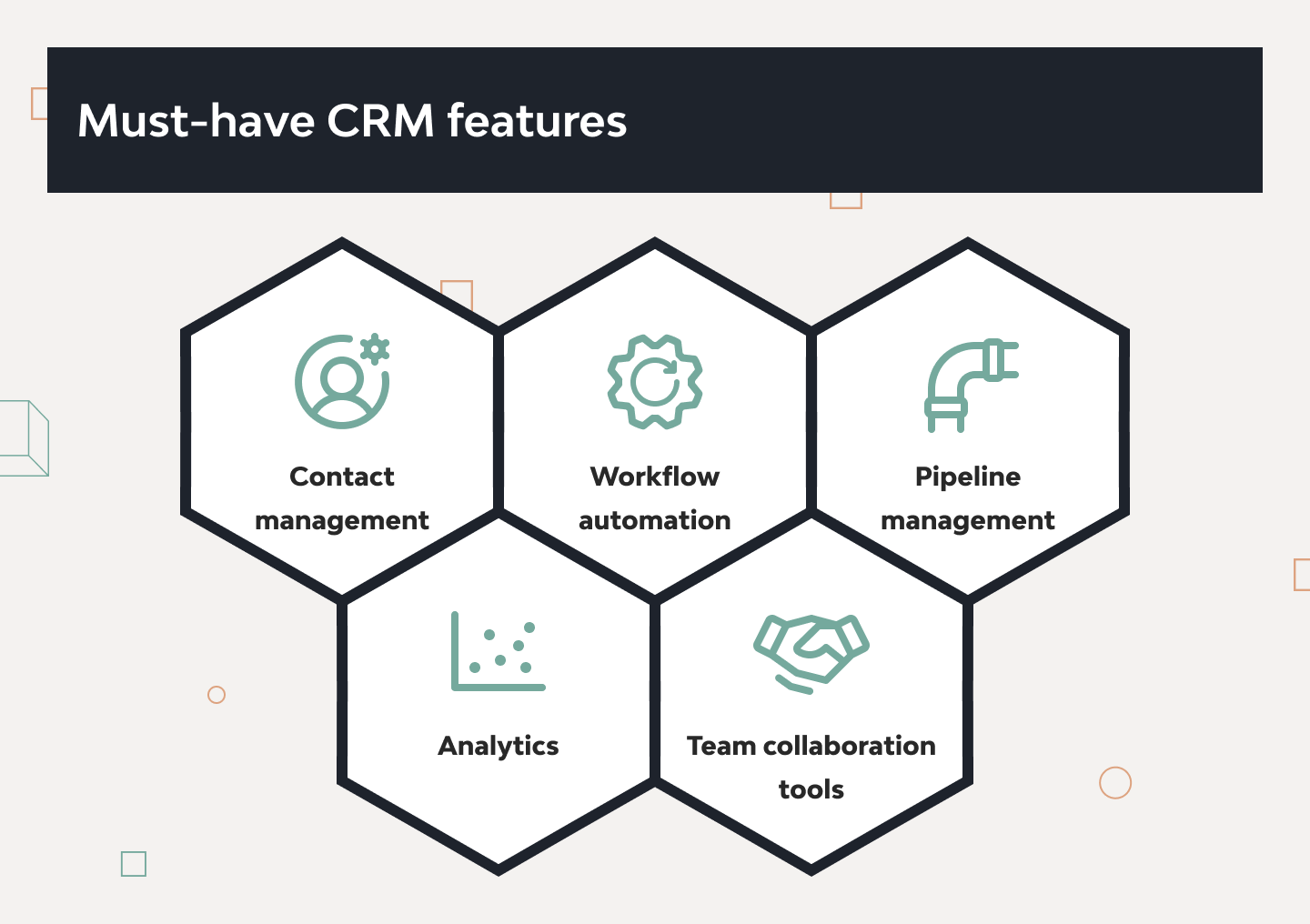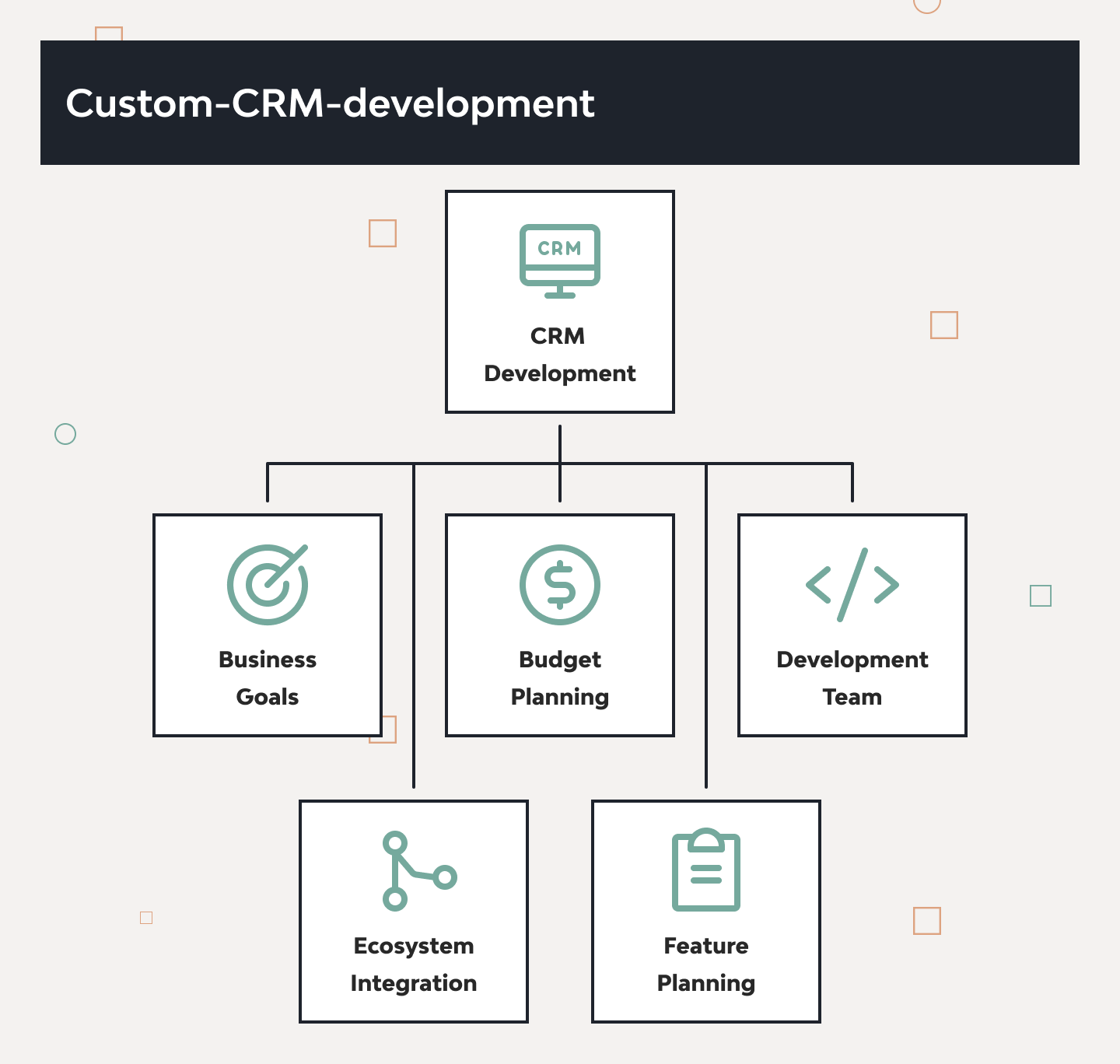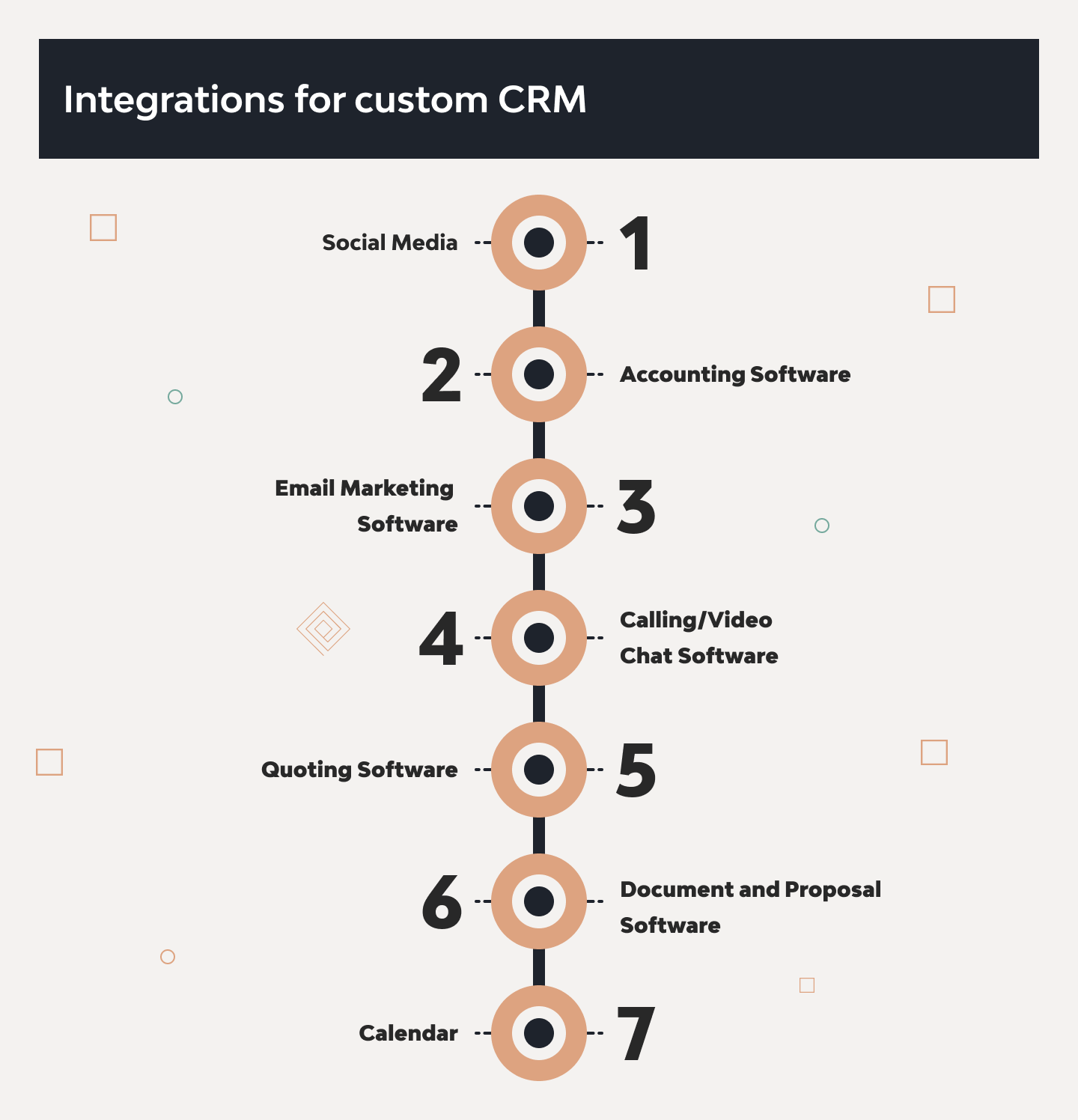Guide on Building CRM Systems with Python

Building a custom CRM can be complex and thorough process. You need to decide on the features and choose a scalable tech stack that won’t limit your growth. To top it off, you have to allocate your resources correctly and choose a development team that will help you meet your business goals.
In this blog post, we’ll discuss why Python is one of the most popular options for custom CRM development, what features you can implement with this technology, and what the overall CRM development process looks like. Also, we’ll share our experience in developing custom Python CRM systems and provide you with real-life examples. Let’s begin.
Why Choose Python for Your CRM?
Python was introduced over 30 years ago, and it’s still growing in popularity. In August 2024, it became a leader in the TIOBE index rating (an indicator of programming language popularity), surpassing C and C++.
So, Python development is still in the game, and it’s not going to lose its rankings. Let’s see why developing Python-based CRM will optimize your business processes and give you the flexibility in scaling your business.
Development speed
One of the main reasons for Python’s glory is its English-like syntax, which is very easy to read, test, and maintain. This means that with Python, developers can handle some complex tasks with just a few lines of code in a shorter period of time. As a result, Python works great if you want to develop a powerful software product, like CRM in a short period of time, test it on real users, and then adapt it to your needs accordingly.
A variety of pre-Сontact purchase history libraries and frameworks for data analysis and visualization
Python has various libraries for CRM analytics and data analysis, including RFM (Recency, Frequency, Monetary) analysis and CLTV (Customer Lifetime Value) analysis. For example, Pandas library is used for data analysis and manipulation, and NumPy works great for numerical computations and scientific computing.
Python also has a robust data visualization ecosystem with libraries for any visualization needs, such as Seaborn and Matplotlib.
General-purpose use cases
Python is a universal programming language that can be used for various purposes, including web development, data science, AI development, machine learning, NLP, robotics, and scientific computing. With to top Python web frameworks and libraries, you can tailor CRM to your unique business needs and combine various features such as sales/marketing analytics, workflow automation, and real-time reporting.
High scalability
Your CRM should scale with your business so that it does not become a burden when you have larger datasets. One advantage of Python development is is a wide range of libraries and tools that can support the growth of your CRM. Scalability however is influenced by various factors, including the underlying architecture, database design, and infrastructure choices. By carefully planning these elements, a Python-based CRM can maintain strong performance and scale effectively as your business grows, handling larger datasets and increased user demand.
Top-Requested CRM Software Features: Essential Functions Businesses Need
The features in your custom CRM will vary depending on your workflow, business type, and the goals you want to achieve. Since you develop a custom solution, you’re not limited by any software and are entirely in charge of the process. Here are some of the must-have features and tools of a robust Python CRM system features that can be customized according to your needs.
Contact management
Your clients and prospects are the lifeblood of your business, so contact management is a pillar of your CRM system. With contact management, you can store all the information you need about your customers, such as their demographics, contact details, products purchased, tickets, and deals. Also, it helps you keep records of all customer interactions with your company in one place and update their profile with fresh data. Contact management usually consists of the following elements:
- Data import and export
- Note logging
- Data and contact filtering
- Contact segmentation
- Contact purchase history
- Integration with communication, marketing, or sales tools
Workflow automation
Automating your most time-consuming routine tasks lets you shift the focus to business tasks. Before choosing features for automation, we recommend mapping out your entire workflow and outlining repetitive tasks that take a lot of time and have significant error rates. Here are some of the basic features you can implement for task automation:
- Automatic email notifications after customer status is changed
- Automatic task assignment to appropriate team members
- Automatic ticket or deal status assignment
- Automated reminders about upcoming tasks
Pipeline management
Pipeline management helps to control the sales process and track how each lead flows through the sales funnel from the initial contact to closing. Must-have features for pipeline management include:
- Customized deal stages
- Funnel charts with pipeline conversion rates
- Lead segmentation by demographic data, customer behavior, and sales stage
Analytics
There is no value in a CRM system without detailed analytics and reporting. Since you’re going to develop a custom CRM, you’re fully in charge of choosing what metrics to track and what types of reports to generate.
With Python data visualization libraries, you can create interactive, customizable charts, graphs, or heat maps to display the necessary metrics. Python also has templating libraries that help automate report generation and scheduling by building summary reports. Here’s what you can include in your analytics:
- Customizable dashboards to analyze metrics and compare them against each other
- Pre-built standard reports
- Data visualization tools
- Marketing campaign performance in real-time
- Sales forecast reports
Team collaboration tools
If you plan to handle communication via the CRM system, consider adding team collaboration tools so your entire team will stay on the same page. Here’s what you may need:
- Team chat
- Smart notifications
- Comments and mentions
- Company feed
- Project chats
How to Implement a CRM System with Python
Before building your own CRM with Python, we recommend starting with design patterns that will help the development team stay on the same page and solve common problems with the exact reusable solutions.
FSM (Finite State Machine) for tracking statuses
FSM models application logic by defining states and transitions, making code easier to maintain and extend. For example, never implement Status as a plain field with in-place validation. Even if, in the beginning, you have a few statuses and really simple transition logic, it will grow in the future and become difficult to support.
Making a log of history changes for each entity
A log of history changes will help you control who did what and when. In such a way, it’s easier to fix any bugs and maintain a structured work process.
Ability to add new logic on changes in a specific field
The work processes are constantly changing, so you’ll need to keep the ability to add new logic to your CRM, for example, by creating a Task on Order status change.
Domain Driven Design (DDD)
Domain-Driven Design is an approach that focuses on a domain model and improving software based on the business domain. This approach can be useful for custom CRM systems because they usually have a rich vocabulary of terms (I.e., ubiquitous language) that domain experts need to explain to developers so they can reflect it in code.
Event-Driven Architecture & CQRS pattern
Event-driven architecture uses trigger events to push information as soon as they occur. It works well in custom CRM because the information there is usually presented as a stream of actions on some Entities (Orders, Clients, etc.) that can trigger other actions. The event-driven architecture allows users to react quickly to any events and respond to customer behavior changes or market dynamics.
5 Things to Consider Before CRM Development
A custom CRM is tailored to your business workflow and has no constraints on adding new features or customizing existing ones. However, you need to prepare to get the most out of it.
Let’s see some tips on Python CRM project development to create a system that will help your business grow.
Define your business goals
Never develop a custom CRM just for the sake of doing this. First, you need to find out a real problem that can not be solved with a ready-made CRM.
Identify the biggest pain points your business faces now and outline the main goal you want to reach with a custom CRM: e.g., help customer support manage tickets, move your leads through the sales funnel more effectively, or get more detailed marketing analytics.
Involve the whole team in the process to avoid solving a problem that doesn’t exist. Talk to different departments, ask them about their workflow, and identify weak areas that need to be fixed. Identify priorities and decide on features that will bring the most value to your business first.
Decide if you have enough resources for development
Let’s admit: developing a custom Python CRM is expensive. However, if you know how to extract the most value out of it for your business, it will pay off in the future.
The price of a custom CRM solution will depend on:
- Type of CRM
There are three main types of CRM systems: operational, analytical, and collaborative. Operational CRM systems help better manage customer journey and give a full picture of a customer interaction with the company. Analytical CRM software is mostly about tracking KPIs and generating reports, while collaborative CRM focuses on interaction between different departments. Depending on your business purpose, you can choose one type of CRM or combine the features of each into one system.
- The complexity of custom functionality
Depending on the type of CRM, you’ll need features of different complexity. For example, developing CRM systems with basic functionalities such as contact management and task tracking costs less than integrating complex features such as AI-driven analytics, complex reporting, or advanced workflow automation.
- The number of integrations and user licenses
Integrating your CRM with external APIs will require additional resources, depending on their amount and complexity. The price will also vary depending on your CRM’s number of users.
Also, count in additional expenses for CRM set-up, ongoing maintenance, software updates, and bug fixes. In addition, you’ll need to educate your team on how to use CRM and create training materials and resources, so don’t forget to spare your budget on this as well.
Choose a development team
Remember one thing: you don’t choose a development company, you choose a business partner who will help you optimize your processes and automate your workflow.
Hire developers with extensive CRM experience who can analyze your current business processes, consult on CRM functionality, and ensure Python open-source compliance. We at DjangoStars always conduct pre-development discovery to define the project scope, gather requirements for your CRM, and discuss the budget and timeline. There is no shooting in the dark, and together, we will establish clear business goals and define the results you expect to get.
Think about design and integrations with tools you already use
The user interface of ready-made CRM systems is constantly improved based on continuous user research, feedback sessions, and user behavior analysis. When you’re building a custom solution for your company, you’ll need to ensure that the CRM interface is easy to use for everyone on the team.
Discuss with your development team how you can minimize users’ learning curve and facilitate CRM adoption in your company. Also, decide how you’ll integrate the tools you already use to make your entire workflow more effective and avoid data silos.
Define which functionality needs to be developed from scratch and which can be implemented by integration with a 3rd-party
Integrating your Python CRM with 3rd party software will save both time and budget. While you can develop some unique features for your business from scratch, you can still use third-party integrations for some common tasks. Here are some of the integrations you can add:
- Accounting software
- Email marketing software
- Calling/video chat software
- Quoting software
- Document and proposal software
- Calendar
- Social media
Examples of CRM Systems Developed by Django Stars
Django Stars has an extensive experience in Python CRM development for different industries. Here are some of the custom solutions we’ve created for our clients.
Boa Lingua – the largest platform for language travel in Switzerland
Challenge
The client has contacted us with the request to modernize their existing platform, standardize their data, improve user experience, and decide on the main growth opportunities. Boa Lingua works with more than 300 schools around the world, which is why it processes a large amount of data on courses, pricing, availability, and facilities.
In addition, Boa Lingua manages a lot of customer information across multiple channels and, therefore, needed a well-structured module for both students and administration to keep all the data in one place.
Main tasks
Our main tasks were:
- Automate operational tasks
- Create a module where students can access prices, dates, and courses. Administrators will manage the booking process and guide students through it.
- Introduce custom data management tools.
Result
As a result, we have created a custom CRM module for managing advanced customer information, automating workflow, and reducing human error. We have developed a fully custom CRM system that automates marketing and interaction with students, as well as
enables dynamic packaging of travel-related products with real-time and personalized pricing.
Money Park – the Switzerland-largest mortgage online broker
Challenge
The client came to us with the request to develop a fully functional MVP for an online mortgage broker and a custom CRM module that will cover the entire client management process: from property search and financing during the ownership phase to follow-up financing and sale.
Main tasks
Our main tasks were:
- Design a complex online mortgage broker platform that processes lots of data from individuals and institutions and takes into account every detail about properties — to provide clients with personalized options.
- Develop a custom CRM system for advisors that maximizes available data to help them make informed decisions about the properties.
Result
We’ve developed a custom CRM system that covers the entire workflow, from the initial contact with the customer to receiving offers from banks.
Conclusion
To conclude, CRM must match your business needs, not vice versa. If you want to create a platform that will scale together with your business, a custom Python CRM integrated with your current ecosystem is the best choice.
If you need a consultation on custom Python development services, the features, cost, and implementation plan, don’t hesitate to contact us. Share some basic information about your requirements, and we will contact you to discuss further steps.
- What types of businesses can benefit from using CRM software?
- Custom CRM software has no industry limitations and can be used for any business, especially if you work in a niche domain and need a custom functionality other CRMs do not provide.
- Why is building your own CRM system with Python better than using CRM software tools?
- Building your own CRM system with Python will give you the freedom to adapt it to your current needs and not depend on the limitations of off-the-shelf solutions. Also, owning software is better in terms of security, as you can create advanced security rules that will align with your business regulations.
- How much does it cost to build a CRM system using Python?
- The price of custom CRM development will depend on various factors, such as the number and complexity of features, the number of integrations, the number of users, the CRM type, etc. Also, remember to include extra costs for maintenance, live support, updates, user training, and knowledge base creation.
- What are the key features to look for in a Python-based CRM system?
- Here are some must-have features your custom CRM should include: contact management, workflow automation, pipeline management, reports and analytics, team collaboration, email marketing integration













